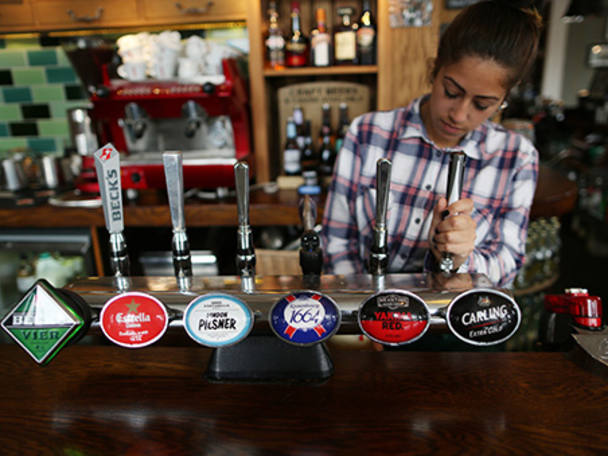The idea of a bar brawl for ownership of indebted pub group Punch Taverns (PUB) might have seemed like fantasy to many. But a Christmas miracle emerged earlier this month with two bidders vying it out to snap up the sprawling pub business.
The first and lowest of the two bids comes from Patron Capital Advisors, which would immediately on completion sell Punch A (one of the two securitisation structures) to Heineken (HEINY). This will give the Dutch brewer control of 1,900 pubs and around £900m of debt out of the £1.18bn on the balance sheet. Punch's board has recommended this offer.
Heineken already operates roughly 1,100 pubs and bars through its Star Pubs & Bars business, which alongside the Punch acquisition would give it roughly 6 per cent market share based on pub count.
The second bid, which at 185p is higher than Patron's 180p bid, comes from Emerald Investment Partners, an Irish family office which is the investment vehicle of Alan McIntosh, who securitised Punch nearly 20 years ago.
The board and Punch's three largest hedge fund investors, representing 52 per cent of shareholders, have so far recommended the Heineken bid.
But some are circumspect about Heineken's move and the perceived benefits of buying Punch.
Philip Gorham, senior equity analyst at Morningstar, said from a financial perspective he was "underwhelmed" because pub ownership is capital intensive and "generates quite low returns".
"Heineken does not disclose financial details of its pub business, but number two pub owner Greene King barely earns its cost of capital, with a return on invested capital in the mid to high single digits, some distance below Heineken's low teens return on invested capital," he said.
"Unlike other symbiotic relationships within the value chain of the consumer staples industry, such as Coca-Cola's arm's-length control of its distribution, we suspect that the flexible agreements in place with the pub landlords will limit Heineken's ability to increase margins on its beverage portfolio."
But Mr Gorham did acknowledge the move to 'vertically integrate' - where the same company brews the beer and sells it directly to the end customer - offered some benefits.
"It ensures the prominence of Heineken products in the owned pubs and, crucially, allows Heineken to trial new products in the on-trade without offering significant financial incentives to the pub owners," Mr Gorham said.
The analyst said new product development was a "crucial tenet of Heineken's strategy in the UK", especially given the stagnation of volume and value in the market and the need to defend share from the booming craft beer industry.
The deadline for the offers to be confirmed by are 11 January.








